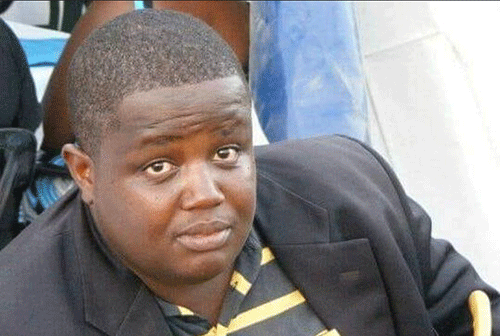A first glance at President Netumbo Nandi-Ndaitwah’s Cabinet seems positive.
Her decision to cut the size of Cabinet is the boldest decision she could have taken.
That move alone will save the motherland millions of dollars in unnecessary perks. Her determination to trim the Cabinet should be applauded by all Namibians, in the hope that the money being saved will be diverted to true projects that will benefit Namibians.
Despite that bold political statement, one can simply not ignore her politically- unconventional selection of Cabinet ministers. Her appointments are unorthodox – to say the least.
I believe she is taking a huge risk because having trimmed the Cabinet, she now needs the most competent of Namibians to lead the ministries.
The question is, did she appoint the most competent at her disposal?
It remains to be seen.
Is Veikko Nekundi the most competent member of Swapo to be minister of works?
It is the President’s call, and she believes that. For some reason, President Nandi-Ndaitwah seems to have belief in “technocrats”.
I sit here and wonder if the ministry of education was a failure with Sanet Steenkamp as executive director (ED), what will change now?
She was literally in charge of that ministry. The president also appointed at least two former EDs to strategic ministries.
The ministries of finance and international relations will be headed by people who at one stage or the other were EDs there.
The two former ministers in those two departments were not the worst performers in Cabinet – but of course the President thinks otherwise.
Whereas Bernard Haufiku was rumoured to take over the health ministry, Esperance Luvindao was appointed.
We all know that Haufiku performed well during his last term as minister.
Why he was not appointed again beats me. Maybe he is not available, or maybe the president does not want to risk a disagreement with him like what happened with late president Hage Geingob. There is more than meets the eye.
There should be a reason that led to these politically unconventional appointments. The reality is that these senior Swapo members who got chopped are all in Parliament, headed by a former prime minister, who somehow ended up in the Legislature after years in the executive. Are they going to sit by and allow for smooth governance?
Or are they going to make it difficult for the executive?
Only time will tell.
For the executive to be successful, they need the support of the legislature.
If they want to pass laws, they need the legislature. If the legislature revolts, then it is going to be a struggle.
I am here wondering whether the President did not choose a Cabinet of political novices because she wants a group of ‘yes’ people around her in Cabinet – who know they are there at the mercy of the President, and they need to toe the line. Is the President’s decision to sideline senior ministers not an attempt to silence divergent opinions in Cabinet?
I hope not. Is this not somehow related to the 2027 Swapo congress?
Does the President seek to neutralise potential political opponents by removing them from the limelight, and working with only those whom she knows do not qualify for top political positions in Swapo?
Iipumbu Shiimi’s name has figured prominently among those with political ambitions.
Pohamba Shifeta’s political ambitions manifested themselves when he dared compete against the President.
Of course, Peya Mushelenga openly supported Shifeta’s candidacy.
Are these three not victims of their ambitions? Time will tell.
The ministries of agriculture, defence, education, health, international relations and finance are key ministries in every government.
In President Nandi-Ndaitwah’s government, these ministries are headed by people she appointed herself.
This nation will not accept excuses from her if her Cabinet does not succeed.
She chose to go against established political norms to get her appointments across. She chose those whom she believed could deliver – but in politics, before you can deliver, you need a political space that is certain and stable.
Did these appointments create political certainty and stability in Swapo?
It remains to be seen.
President Nandi-Ndaitwah was unequivocal in her stand that it will not be business as usual.
She has taken the first step towards that ‘not business as usual’ governance.
She surprised many with her appointments.
Now, she must make sure that those whom she appointed perform.
She has a government that will clearly be seen as having intruded into the political space of former ministers.
Consequently, her ministers might face fully-blown political warfare as Agenda 2027 intensifies.
Will her appointments withstand that political warfare and keep focused on simply delivering?
That remains to be seen.
All in all, the first step in reducing Cabinet ministries, the president should be applauded.
After that, the next step is for her preferred Cabinet to succeed.
That step, whether her appointments rise to the occasion and deliver, will be the next test.
It is a test I think the President underestimated.
It is a test I hope her Cabinet will pass.
But it is a true test, compounded by the fact that she risked it all by departing from established political norms.
As I raise this, I am excited for the future of the motherland – where you do not need political puppetry to rise and serve your country.
It should be a future where meritocracy might be the yardstick of appointments to public service, a future dependent on the success of President Nandi-Ndaitwah’s government.
Blessed week ahead, Namibia.
*Natjirikasorua Tjirera is a senior Legal Aid officer and political commentator. He writes in his personal capacity.


